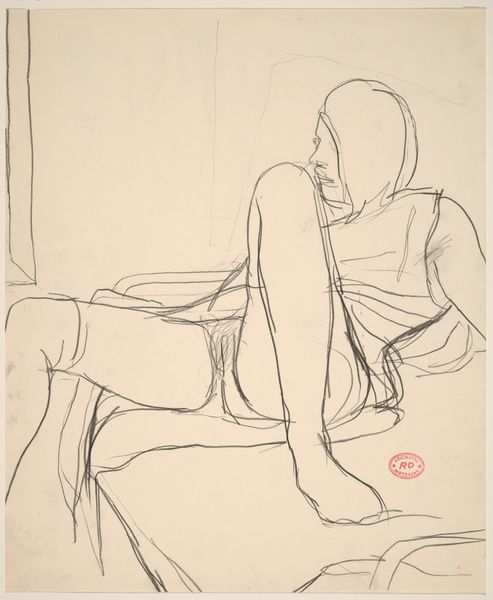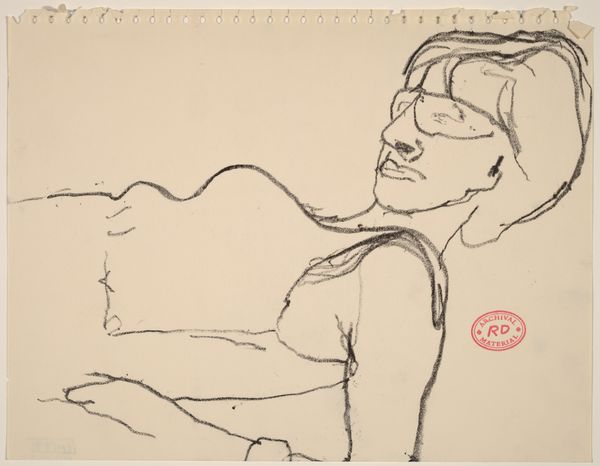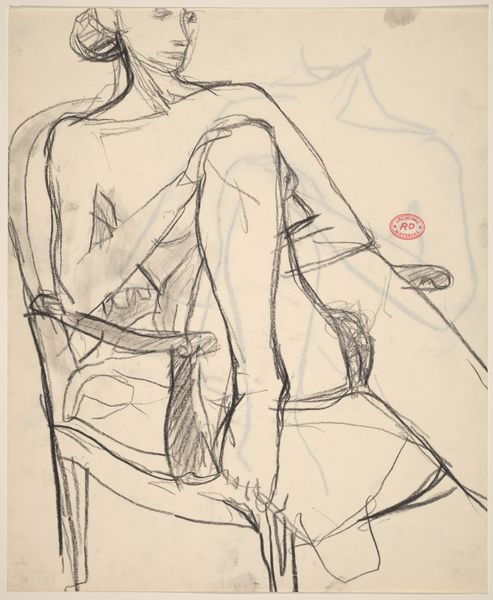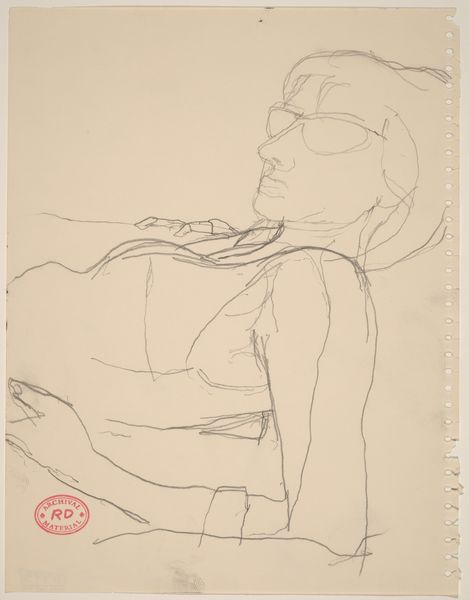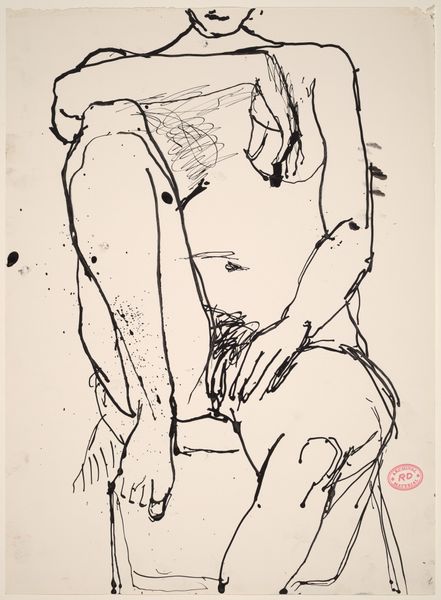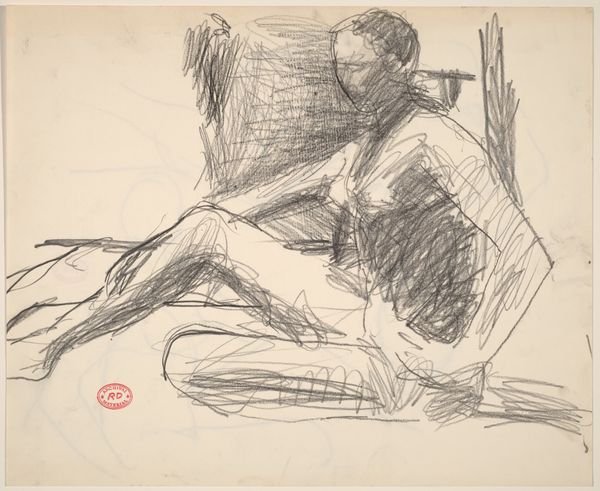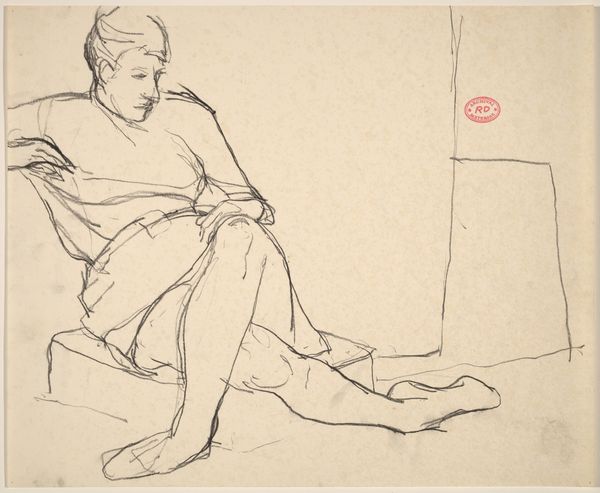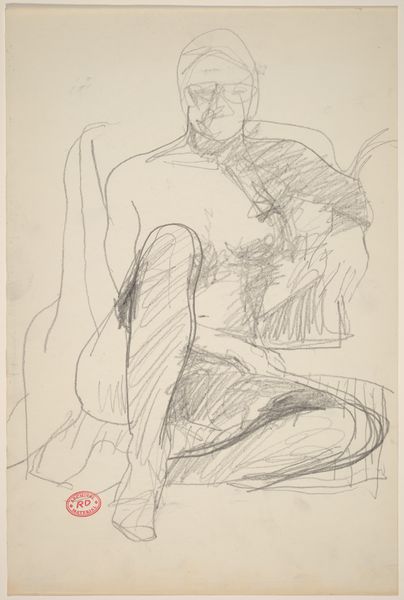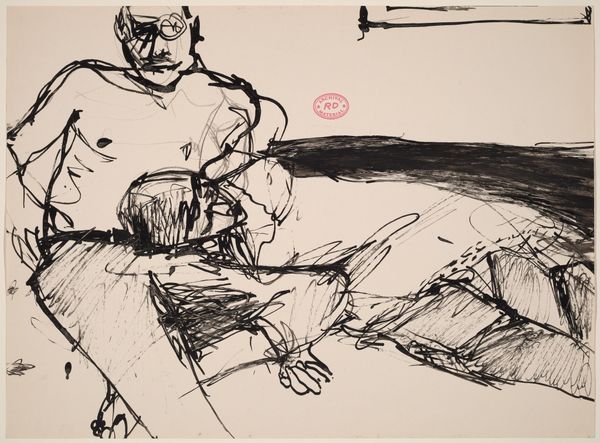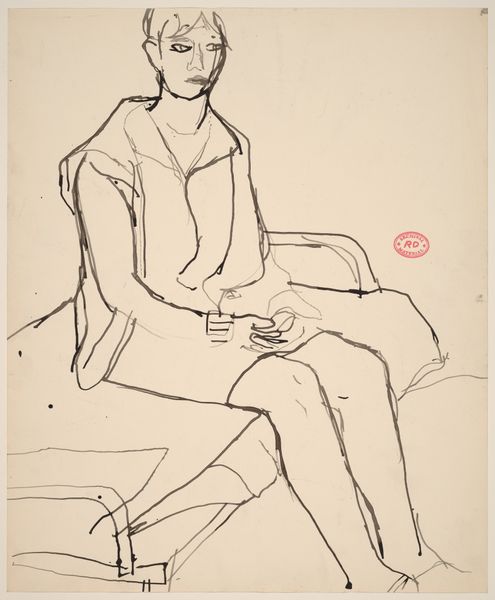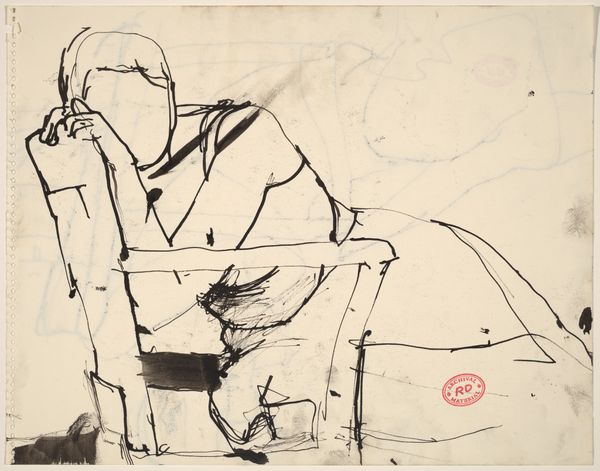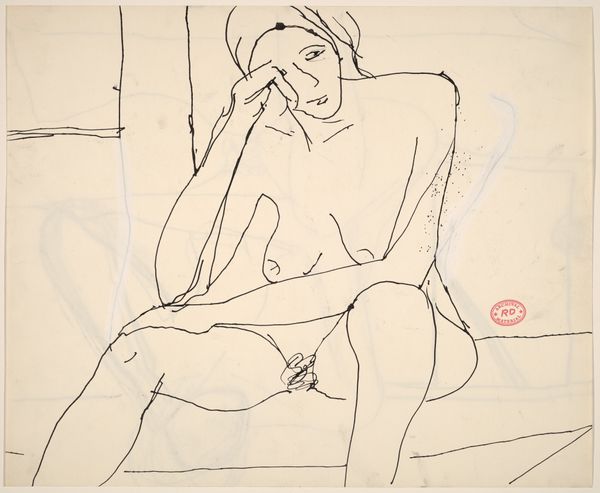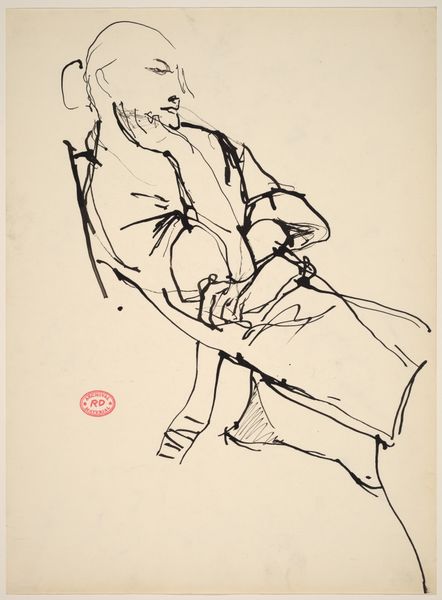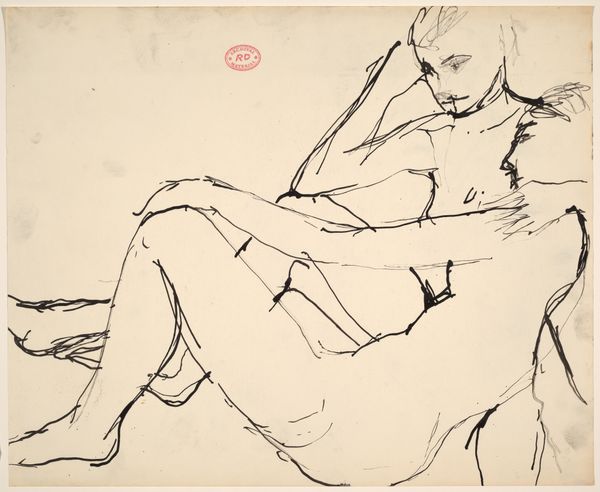![Untitled [seated woman resting against a chair back] by Richard Diebenkorn](/_next/image?url=https%3A%2F%2Fd2w8kbdekdi1gv.cloudfront.net%2FeyJidWNrZXQiOiAiYXJ0ZXJhLWltYWdlcy1idWNrZXQiLCAia2V5IjogImFydHdvcmtzLzQxMmRlNjc3LTk3OGEtNDYxMC04M2VjLWE3OGM0YjQyYTg2Ny80MTJkZTY3Ny05NzhhLTQ2MTAtODNlYy1hNzhjNGI0MmE4NjdfZnVsbC5qcGciLCAiZWRpdHMiOiB7InJlc2l6ZSI6IHsid2lkdGgiOiAxOTIwLCAiaGVpZ2h0IjogMTkyMCwgImZpdCI6ICJpbnNpZGUifX19&w=3840&q=75)
Untitled [seated woman resting against a chair back] 1955 - 1967
0:00
0:00
drawing, ink, pen
#
portrait
#
drawing
#
ink drawing
#
pen sketch
#
figuration
#
bay-area-figurative-movement
#
ink
#
pen
#
genre-painting
#
modernism
Dimensions: overall: 27.5 x 35.1 cm (10 13/16 x 13 13/16 in.)
Copyright: National Gallery of Art: CC0 1.0
Curator: What captures me most about this drawing is its poignant quietude. Editor: Indeed. We are looking at an ink and pen drawing by Richard Diebenkorn, likely created between 1955 and 1967. It's simply titled, "Untitled [seated woman resting against a chair back]". And yes, quietude resonates. The sparseness of the lines, the deliberate incompleteness… it all evokes a particular mood, doesn’t it? Curator: It’s almost hauntingly familiar. I see echoes of a fleeting moment, like a memory sketched on the edge of awareness. There’s this sense of the woman being utterly present in her own world, yet also somehow inaccessible. Have you ever had that feeling of intense longing for a certain feeling? That is what this picture conjures up for me. Editor: Absolutely. Diebenkorn's decision to leave sections of the composition open generates that feeling of a captured fragment. This reminds me of modernists such as Picasso and Matisse. It allows viewers to participate, to fill in the gaps not just visually, but also narratively. It subtly interrogates ideas of female representation within modernism itself. Who is this woman beyond an artist's quick sketch? Is she knowable? Curator: I think, in many ways, we all can see our mothers in the subject of this painting. I am intrigued how this woman, even though she is anonymous, could serve as a template for us to interpret the image differently, depending on the life experience that we are bringing into play. The beauty of art is that, regardless of the life stories or the differences in cultural backgrounds that each one of us has, we all can come to art and allow it to touch our inner cords. What are the narratives, or experiences, you are thinking about when viewing this art? Editor: A very powerful idea. Personally, it prompts reflection on the historical limitations placed upon women, their representation as objects of domesticity and muse rather than fully realized subjects. Her pose, the angle of her head, could almost be read as weariness – not of physical labor, but perhaps the weight of expectations and societal constraints of that era. And Diebenkorn invites us to ponder the many unspoken nuances in a quiet composition. Curator: I love that observation. Diebenkorn truly gave us a generous invitation. The raw elegance here somehow holds the immense capacity to cradle many personal stories, each valid in its own right, all reflected by one anonymous figure in thoughtful rest. Editor: Agreed. Thank you for offering a much richer view on this evocative sketch.
Comments
No comments
Be the first to comment and join the conversation on the ultimate creative platform.
